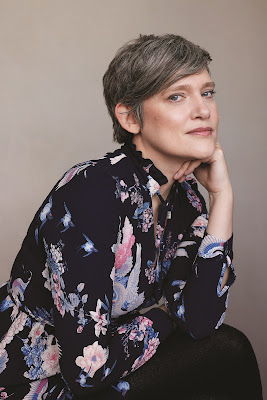Heather O'Neill
Heather O’Neill is a novelist, short-story writer and essayist. Her work includes When We Lost Our Heads, a #1 national bestseller and a finalist for the Grand Prix du Livre de Montréal, The Lonely Hearts Hotel, which won the Paragraphe Hugh MacLennan Prize for Fiction and was longlisted for the Women’s  Prize for Fiction and CBC’s Canada Reads, and Lullabies for Little Criminals, The Girl Who Was Saturday Night, and Daydreams of Angels, which were shortlisted for the Governor General’s Literary Award for Fiction, the Orange Prize for Fiction and the Scotiabank Giller Prize two years in a row. O’Neill has also won CBC’s Canada Reads and the Danuta Gleed Award.
Prize for Fiction and CBC’s Canada Reads, and Lullabies for Little Criminals, The Girl Who Was Saturday Night, and Daydreams of Angels, which were shortlisted for the Governor General’s Literary Award for Fiction, the Orange Prize for Fiction and the Scotiabank Giller Prize two years in a row. O’Neill has also won CBC’s Canada Reads and the Danuta Gleed Award.
The Capital of Dreams is O’Neill's most recent novel.
My Q&A with the author:
How much work does your title do to take readers into the story?Follow Heather O’Neill on Instagram.
My novel is about a fictional country that gets its borders after World War 1. They invest in the arts, and hold it above everything else. They believe they don’t need to invest in an army. They will be protected by the West should they be attacked. And then at the height of their golden era, the Enemy comes to wipe them off the face of the earth.
The Capital of the country is so important in the novel. Sofia, a fourteen-year-old girl, is entrusted with getting her mother’s manuscript out of the country, so the culture can be saved.
I liked the idea of having a sophisticated girl from the cultural elite, having to make her way through the war-torn countryside. I wanted to see how the philosophy of The Capital made sense to her once she was out of it. Can a clarinet tune stop a war? Can a poem save a people? I have always believed in the power of art.
I wanted to show why artists and children are targeted by genocidal invaders. And how they are at the heart of a country’s identity.
What's in a name?
I decided to name the children in the novel names that sounded as though they might all come from varying countries. I wanted them to have names that made them sound as though they were each from a different sort of children’s book from a different culture. They were all from the land of childhood which has different borders than adults.
I named the main character Sofia, because it means knowledge, and she is a philosopher of the children’s condition and the particular existential questions children have, and particularly the ways in which children make sense of trauma.
How surprised would your teenage reader self be by your novel?
Very delighted probably. Most of the novels I write are based on idea I had as a young girl. I would plan out the novels that I wanted to write when I was older and figured out how to write a novel. Capital of Dreams was a novel based on stories I had heard about my dad and uncles going to war as teenagers. I would be so surprised my future self listened to me. And that I was in possession of real ideas for novels. I think children have incredible ideas.
Do you find it harder to write beginnings or endings? Which do you change more?
I almost always write the ending first. So I know where the characters are heading towards. The beginning always changes. Because you don’t begin a book with thebeginning. You begin a book with an arresting moment, a sort of photograph, a little dance, to trick the reader into reading the whole book.
At the start, I dress my characters up and say, “Your job is to make the reader enchanted by you. Do anything, something lovely, something bizarre.”
Do you see much of yourself in your characters? Do they have any connection to your personality, or are they a world apart?
When I was creating the character of Clara Bottom, a renown philosopher, I went to great efforts to make her a narcissist and bombastic. I wanted her to be so openly full of herself and not humble. It was such a fun way to portray a middle-aged woman.
When I was finished the novel, everyone I knew said Clara Bottom resembled me very much. Which I found shocking and hilarious.
What non-literary inspirations have influenced your writing?
This book was very influenced by the news of the world. I describe an occupied country being subjected to a genocide. What was happening in the Ukraine and Gaza greatly affected the politics of the novel.
But also photographs. Fashion magazines. Traveling. I collect notes about people doing and saying strange things to me on the subway.
I was influenced by the way children play instruments. My daughter went to a Performing Arts school. There was something so magical about the sound of children making their way through a piano tune. The notes would tumble out into the corridor. I loved the awkward pacing and imperfection. I wanted some of that spirit in the language of this novel.
--Marshal Zeringue
